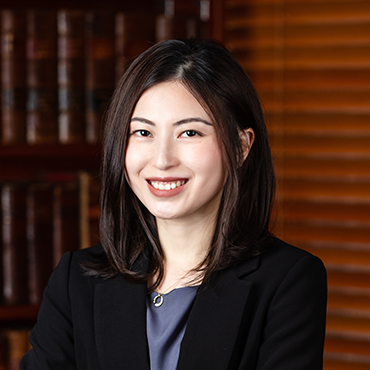Re T & L (Parental Order: s.12 Parent and Child Ordinance (Cap.429)) [2022] 2 HKLRD 685, [2022] HKCFI 747 (Alison Choy)
Alison Choy represented the Applicants in Re T & L (Parental Order: s.12 Parent and Child Ordinance (Cap.429)) [2022] 2 HKLRD 685, [2022] HKCFI 747.
The applicants (collectively “Xs”), a married couple resident in Hong Kong, applied under s.12 of the Parent and Child Ordinance (Cap.429) (the PCO) for essentially a parental order declaring that the minor B, who was born in the Republic of Georgia to a surrogate mother with the sperm of X1, was to be regarded in law as their child. At the time of the application, B was about 17 months old and living in Georgia as he had been since his birth. The main issues in the application were: (i) whether, the originating summons having been issued more than six months after B was born, time should be extended under s.12(2) of the PCO; (ii) whether the requirement under s.12(3)(a) of the PCO should be dispensed with, or whether B’s “home” was with Xs or either of them at time of the issue of the originating summons and the time the order was made; and (iii) whether the payments made by Xs for the surrogacy arrangements should be authorised and approved by the Court under s.12(7) of the PCO.
Held, making inter alia the following orders and directions: (i) that the originating summons be further adjourned; (ii) the Director of Social Welfare to submit a supplemental social investigation report within two months after B’s arrival in Hong Kong and the completion of quarantine requirements (if any), such report to include observation and investigation made of B seen with Xs physically; (iii) the Director to submit a supplemental suitability assessment report within two months after B’s arrival in Hong Kong and the completion of quarantine requirements (if any), such report to include whether Xs had any criminal record; and (iv) leave for the Official Solicitor to submit a supplemental report, if she deemed it necessary, within the same time period specified for (ii) and (iii), that:
- (1) Although Xs had to obtain various documents to support their application, there was no reason why the application could not have been filed first with supporting documents to be produced in supplemental affirmations. That said, there was no evidence suggesting bad faith on Xs’ part behind the delay. The originating summons was issued less than two months out of time, which was a relatively short delay compared with the lifelong welfare of B. In the circumstances, the Court was prepared to extend time for the application. (See paras.104 – 105.)
- (2) The payments made by Xs for the surrogacy arrangement totalled US$52,575. The expert on Georgian law said that it did not prohibit or limit such payments, did not refer to “reasonable compensation” or lay down any basis for determining the reasonableness of such compensation. She also said that the payments in the present case were reasonable considering the average fees for surrogacy arrangements in Georgia. The evidence showed payment being made by Xs directly to the surrogate mother to ensure that she was not exploited by the surrogacy agency. There was no evidence that Xs had not acted in good faith or intended to defraud the authorities. Nor was there evidence of any moral taint in their dealings with the surrogate mother. Further, given that Xs had a genuine need to resort to surrogacy, had used X1’s own sperm and had shown unconditional love and care for B, there was nothing to show that there was an abuse of public policy. In the circumstances, notwithstanding the provisions of the Human Reproduction Technology Ordinance (Cap.561), and having considered what was said in FH v WB, the Court was prepared to grant retrospective authorisation of the expenses under s.12(7) of the PCO (FH v WB [2019] HKCFI 1748 considered). (See paras.106 – 111.)
- (3) B was in X2’s physical care for about two months and in X1’s physical care for only about 18 days. Although the nannies concerned were not extended family members of Xs, they had rendered good care under Xs’ supervision. The evidence showed that Xs had used all their best endeavours to care for the child through remote means. Adopting a wide and purposive interpretation, and a flexible construction of the term “home” for the purposes of s.12(3)(a) of the PCO, the Court found that B’s home was with Xs at the time of their application. In light of the order that the Court intended to make, B’s home should be with Xs in Hong Kong if and when the parental order was made (Re Z (Parental Order: Child’s Home) [2021] EWHC 29 (Fam) applied). (See paras.117, 121 – 122.)
- (4) The authorities were to the effect that a parental order reporter’s investigation must include seeing the child with the applicants unless there were compelling reasons, based on the child’s welfare, why such observation could not take place or where there was sufficient independent evidence pertaining to the child’s welfare from an alternative source. In the present case, the social work officer should see B with Xs physically (Re Z (Children) (Foreign Surrogacy: Allocation of Work, Guidance on Parental Order Reports) [2017] 4 WLR 5 applied; Re A (A Child) (Parental Order: Surrogacy Arrangement) [2015] EWHC 1756 considered). (See paras.68, 72 – 74, 126 – 128, 131.)
- (5) It was in B’s best interests that he be bought to Hong Kong before any final decision on a parental order in respect of him was made. (See para.130.)
[The above is excerpted from the headnote to the report in HKLRD.]


